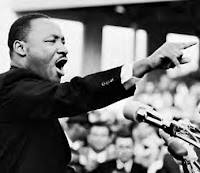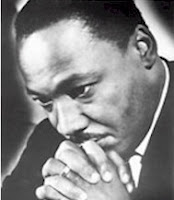Interim leader?
Minnis struggles to establish formidable opposition
BY CANDIA DAMES
Guardian News Editor
candia@nasguard.com
Nassau, The Bahamas
Nearly a year after voters delivered a wholesale rejection of the Free National Movement (FNM), the opposition party finds itself in a familiar place — lacking strong, convincing leadership and struggling to stay effective and relevant even with a government that has so far failed to deliver on key near-term promises made on a grueling campaign trail.
The 2012 general election was bitterly fought with high stakes for both the FNM and the Progressive Liberal Party (PLP).
Although it made a commendable showing, the Democratic National Alliance (DNA) was never really a major force to contend with.
In some circles, Branville McCartney’s name still comes up when discussions take place about a possible leader for the FNM closer to the next election.
But McCartney, the charismatic head of the DNA, has not in my view proven himself an impressive enough leader, though many applaud him for being brave enough to stand up to Hubert Ingraham and resign from his Cabinet, and tenacious enough to go head to head with Ingraham and Perry Christie at the polls.
The PLP and FNM both headed into the 2012 general election with the same problem: What to do about leadership in the event of a loss.
Neither party had a clearly defined succession plan.
With a win at the polls, the PLP was able to kick the can down the road, but for the FNM, the leadership question became an immediate issue and the party needed a quick solution.
The resignation of Hubert Ingraham from the FNM on the night of the election defeat left many supporters reeling, and some have yet to get over his departure from frontline politics.
The wipeout of most of the former Cabinet put the party in a difficult position as it turned its focus toward identifying new leadership.
The Free National Movement was left fractured and bloodied by the May 7, 2012 defeat, and in shambles by Ingraham’s exit from the political stage, and it had very little options.
For nearly a year now, Dr. Hubert Minnis, the popular Killarney MP, has been doing his best to keep the FNM afloat, but he lacks what is needed to re-energize the party.
It does not help that he still has to work against a very strong pro-Ingraham group within the FNM.
It is likely that Minnis was caught totally off-guard by the task placed before him in May 2012.
He has shown great focus in attempting to put the pieces back together, but he comes on the tail of a formidable force, a towering personality, and it might not be possible for him to provide supporters with the kind of comfort, assurance or strong leadership of an Ingraham.
While Minnis must be respected for his leadership style, and it will take time for the party to adjust, it does not now appear likely that the FNM will go into the next general election with Minnis as leader.
For now, he is playing an important role of attempting to keep all the marbles in the circle until the party is able to identify someone who is able to display the kind of leadership and charisma needed to do battle with the PLP once again.
During the last term, FNMs and PLPs alike acknowledged that Minnis was a strong, hard working and likeable MP. Today, he remains that.
He uses social media and other technologies to communicate with constituents and is deeply engaged in his constituency.
Minnis lucked out though from having a safe seat, and some observers acknowledged that it would have been very difficult for any FNM to lose Killarney, no matter how unpopular Ingraham and the FNM had become in the lead up to the last general election.
While a good MP, Minnis is not a career politician and was not known during the last term as a standout minister.
His communications in Parliament then, and his contributions to debates now are not engaging or particularly informative.
He does not command attention, and even with all the obvious slip ups of the Christie administration, he struggles to use them to his advantage.
There is evidence that he does try, though.
Last week, the FNM leader called for the government and the police to close down web shop gaming after the chief justice lifted an order that had provided the web shops with temporary legal protection.
But it was hard for Minnis to come off as convincing given his early position that he supported the legalization of web shop gaming in The Bahamas.
One issue Minnis has not gotten credit for though is that he asked pertinent questions about the National Insurance Board on the floor of the House of Assembly long before the matter was on the radar of the media or anyone else publicly.
United
Minnis has had a tough first year as leader of the FNM.
He was forced to prop up an obviously bad candidate (Greg Gomez) in the October 2012 North Abaco by-election.
And he angered some supporters when he declared, “The Ingraham era is over.”
North Abaco was the third consecutive election lost by the FNM and some party supporters still struggle from the hurt and disappointments of those defeats.
While some seem to have gotten a recent boost from growing anti-PLP sentiment in social media, over the airwaves and elsewhere, the road to 2017 will be long.
While it has already been publicly revealed that FNM Chairman Darron Cash had been at odds with Minnis, the two in recent months have been careful enough to display a united approach to opposition politics.
They at least seem to have patched things up.
This is a positive sign.
Opposition parties, of course, turn themselves around all the time. That is how they win elections.
Following the 2007 defeat, the PLP was a weakened bunch with a leader who had been severely wounded by the defeat.
Christie was identified as the key reason the party lost at the polls, and was advised by experts to effect key reforms if the party was to have any real chance at a 2012 win.
In opposition, the PLP never stopped pounding and it never stopped campaigning.
It benefited from a strong group of former ministers who took their blows from the governing party and never took their eyes off of 2012 and the chance it represented.
Only three members of Ingraham’s last Cabinet held on to seats in Parliament: Minnis; Neko Grant (Central Grand Bahama) and FNM Deputy Loretta Butler-Turner (Long Island), whose best approach to opposition politics appears to be boisterous and disruptive behavior in Parliament.
The other FNM members are Edison Key (the MP for Central and South Abaco who also sat in the previous Parliament), and newcomers Richard Lightbourn (Montagu); Peter Turnquest (East Grand Bahama); Hubert Chipman (St. Anne’s) and Theo Neilly (North Eleuthera).
The FNM of today is reminiscent of the FNM that existed for most of the first term of the Christie administration.
Between 2002 and 2005, the party was led by Tommy Turnquest, who sat in the Senate after he lost the Mount Moriah seat.
The FNM under Turnquest was lackluster and fractured, though Turnquest, like Minnis took the leadership job seriously.
In 2005, Turnquest appointed an advisory council of the party headed by former Deputy Prime Minister Frank Watson to advise on what the party needed to do to win the 2007 election.
The council advised Turnquest that there are many FNMs who want him out and Ingraham back in as leader.
Even today, some FNMs think Ingraham could still successfully return to frontline politics.
For them, there is that nostalgic longing for ‘Papa’.
Hiatus
Earlier this year, Ingraham used a familiar word when he told reporters that he was on “hiatus”.
But when asked the context in which he was speaking, he assured that it was not a suggestion that he planned one day to return to frontline politics.
It was a throwback to his word choice during a public event in 2004.
While addressing a group of administrative professions in Freeport, Grand Bahama, Ingraham referred to his departure from frontline politics as a “hiatus” and said it could stay that way as long as those who were in office advanced The Bahamas and its people.
Following Ingraham’s dramatic return as leader of the FNM in 2005, I recall asking an ever-confident Prime Minister Christie to react to the move.
Christie said Ingraham’s legacy was “on the line” and he vowed to politically cremate him in the next general election.
“I’m really sad that he came back,” Christie said.
“He has placed his legacy on the line and when you place your legacy on the line in a battle with the Progressive Liberal Party – Hubert Ingraham, Perry Christie, however one would wish to look at it – he will lose.”
It turned out that Christie’s prediction was wrong — as least as it related to 2007.
Christie had to wait five more years for the political cremation he foreshadowed.
Strange things do happen in politics.
Five years is a long time for the government to show the electorate what it can and cannot do and for the opposition to show its strength or lack thereof.
We would hope though that the FNM does not this time around feel it’s only real hope is to drag Ingraham out of retirement back into frontline politics.
Ingraham has taken the party far over the nearly 20 years he led it. He has won three general elections and left in place a legacy of which to be proud.
Minnis is right that the Ingraham era is over.
For the FNM, the decision will eventually need to be made on how long the Minnis era could realistically last.
April 22, 2013
thenassauguardian


